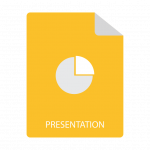奥巴马总统在安赛乐米塔尔集团克利夫兰钢铁厂英语演讲稿
THE PRESIDENT: Hello, Ohio! (Applause.) It is good to be backin Cleveland. The last timeI was herewas about a year ago, in the final days of the campaign. I know how much you misshearing how Iapprove this message every night on your TV. (Laughter.) I will say it is niceto behere when the only real battle for Ohio is the Browns-Bengals game thisSunday. (Applause.)He’s got the Browns shirt right here, Brownscap. (Laughter.)

I want to thank Scotty for thatterrific introduction. Give him a biground of applause. (Applause.) He is a natural. I want to thank your CEO, Lakshmi Mittal, forinvesting in Americaand the Cleveland area. We appreciate him. (Applause.) And I want to thankall of you forhaving me here today.
Along with me, there are a coupleof people I just want to acknowledge. First of all,America’s Secretary of Energy, Ernie Moniz, is here. Right there. (Applause.) AndCongresswomanMarcy Kaptur is here. Give Marcy a biground of applause. (Applause.) Fightingfor working people every day.
And earlier this afternoon I hada chance to see your mayor, Frank Jackson; your countyexecutive, EdFitzGerald. And even though they’re nothere, I want to thank them for the greatwork they’re doing on behalf ofworking people throughout the region. (Applause.)
And then, finally, I want tothank Mark and Gary for showing me one of the biggest steelplants inAmerica. And they told me that folks areproud to have been making steel right here fora century -- 100 years -- righthere. (Applause.) And they explained that, today, the steelyoumake in Cleveland is some of the strongest you’ll find anywhere in theworld. It’s one of themost productiveplants in the world. Best workers in theworld. (Applause.)
And what’s remarkable is, whenyou think about it, go back to where this plant was just afew years ago. The economy was in free fall, auto industryon the brink of collapse. And thatmeantdemand for steel had dried up. The blastfurnaces went quiet. About 1,200steelworkerspunched out for what might have been the last time. And that all came at the end of a decadewhenthe middle class was already working harder and harder just to get by, andnearly one inthree American manufacturing jobs had vanished -- a lot of themgoing overseas. And that couldhavedevastated this community for good.
But we rolled up our sleeves, wemade some tough choices. We rescued andretooled theAmerican auto industry; it saved more than a million jobs. We bet on American ingenuity andAmericanworkers. (Applause.) And assembly lines started humming again, andautomakersstarted to make cars again. And just a few months after this plant shutdown, your plantmanager got the call: Fire those furnaces back up, get those workers back on the job. And overthe last four years, you’ve madeyourselves one of the most productive steel mills not just inAmerica, but inthe world. In the world. (Applause.)
So you retooled to make thestronger steel that goes into newer, better American cars andtrucks. You created new partnerships with schools andcommunity colleges to make sure thatfolks who work here have the high-techskills they need for the high-tech jobs -- because I waslooking around thisfactory, and there’s a whole bunch of computer stuff going on.
One of your engineers -- and Iwant to make sure I get Margaret’s name right here --Margaret Krolikowski. Did I get that right, Margaret? (Applause.) Where’s Margaret? Whereisshe? There is she is, back there. So I’m going to quote you -- I’m going toquote you. Here’swhat Margaretsaid: “When we came back, we wanted tomake sure we were in a position wherewe never shut down again.” Never shut down again. And that means making sure that workershereare constantly upgrading their skills and investments being made in thestate-of-the-arttechnology.
And it was interesting, when Iwas meeting a number of the folks who were giving me thetour -- folks who havebeen here 30 years, 40 years -- but obviously the plant has changed, andsoduring that period they’ve had to upgrade their skills. And that’s what’s happened. And thestory of this plant is the story ofAmerica over the last five years. Wehaven’t just beenrecovering from a crisis. What we’ve been trying to do is rebuild a new foundation for growthandprosperity to protect ourselves from future crises. And because of the grit and resilienceandoptimism of the American people, we’re seeing comeback stories like yours allacrossAmerica.
Over the last 44 months, ourbusinesses have created 7.8 million new jobs. Last month,another 200,000 Americans went back to work. (Applause.) And a lot of those jobs are inmanufacturing. So now we’ve got more work to do to get thoseengines of the economy churningeven faster. But because we’ve been willing to do some hard things, not just kick thecan downthe road, factories are reopening their doors, businesses are hiringnew workers, companies thatwere shipping jobs overseas, they’re starting totalk about bringing those jobs back to ’re starting to see that.
And let me give you an example,because we were talking about this -- Mr. Mittal and otherswere talking aboutwhat’s different now. Take a look atwhat we’ve done with American years, folks have talked about reducing our dependence on foreignoil -- but we didn’t reallydo it. Andwe were just importing more and more oil, sending more and more prices keep on going upand up and up. We finally decided wewere going to do somethingabout it.
So we invested in new Americantechnologies to reverse our addiction to foreign oil,double wind power, doublesolar power, produce more oil, produce more natural gas, and do itall in a waythat is actually bringing down some of our pollution, making our entireeconomymore energy-efficient. Today, we generatemore renewable energy than oduce more natural gas than anybody in the world. Just yesterday, we learned that for thefirsttime since 1995, the United States of America produces more of our own oil hereat homethan we buy from other countries. First time since 1995. (Applause.) And that’s a big ’s what America has done these past fiveyears.
And that is a huge competitiveadvantage for us. Part of the reasoncompanies now want tomove -- we were just talking about it -- this plant, ifit’s located in Germany, energy costs aredouble, maybe triple; same inJapan. So this gives us a big edge. But this is also important: Wereached the milestone not just because we’reproducing more energy, but also we’re wastingless energy. And this plant is a good example of it. We set new fuel standards that doublethedistance our cars and trucks go on a gallon of gas by the middle of the nextdecade. Thatsaves the average driver,everybody here, more than $8,000 at the pump over the life of a newcar. You like that? (Applause.) We launched initiatives to put people to work upgrading ourhomes, andour businesses, and our factories so we’re wasting less energy. All that savesbusinesses money on theirenergy bills. Your plant is one of thehundreds to answer that if you’resaving money on energy costs, that means you can invest in equipment, investinworkers, hire more people, produce more products.
And here’s another thing: Between more clean energy, less wastedenergy, the carbonpollution that’s helping to warm the planet, that actuallystarts going down. And that’s goodnewsfor anybody who cares about leaving a planet to our kids that is as beautifulas the one wegot from our parents and our grandparents. (Applause.) So it’s a win-win. Our economykeepsgrowing, creating new jobs, which means that strengthening our energysecurity and increasingenergy efficiency doesn’t have to be a choice betweenthe environment and the economy --we can do both.
So we’ve tackled the way we useenergy. That’s making America morecompetitive in order toattract good jobs. We’ve also tackled our deficits. A lot of people have been concerned aboutdeficits. Since I took office, we cut them inhalf. That makes America more attractivewhen itcomes to business investment decisions.
And we’ve tackled a broken healthcare system. Obviously, we’re not doneyet. (Applause.)Obviously, we’re not done yet. But over the last three years, health carecosts have grown at theslowest pace on record. And this is a great place to work thanks to a great steelworkersunionand cooperation between management and labor. (Applause.) But just keep in mindthatif businesses’ health care costs are growing at about one-third the ratethat they were a decadeago, that makes America a more affordable place to dobusiness, and it also means that theinvestors here, if they’re putting lessmoney into health care costs, they can put more money interms of hiring moreworkers and making sure that they’re getting good pay.
So that’s what all these toughdecisions are about: Reversing theforces that have hurt themiddle class for a long, long time, and building aneconomy where anybody, if you work hard,you can get ahead. That’s what plants like this have always beenabout. It’s not that it’seasywork. But it means if you work hard, you’vegot a chance to buy a home, you’ve got achance to retire, you’ve got a chanceto send your kids to school, you have a chance to maybetake a little vacationonce in a while. That’s what peoplestrive for. And that’s what will makethe21st century an American century, just like the last century was.
But I didn’t run for President togo back to where we were. I want us togo forward. I want usto go towards thefuture. (Applause.) I want us to get us to where we need tobe. I want tosolve problems, not justput them off. I want to solveproblems. And we’ve got to do moretocreate more good, middle-class jobs like the ones folks have here.
That means we’ve got to doeverything we can to prepare our children and our workers forthe competitionthat they’re going to face. We should bedoing everything we can to help putsome sort of advanced education withinreach for more young people. Noteverybody has got togo to a four-year college, but just looking at theequipment around here, you’ve got to have alittle bit of advancedtraining. It may come through acommunity college or it may come througha technical school, but we’ve got tomake sure you can get that education, your kids can getthat education withoutgoing broke -- without going broke, without going into debt. (Applause.)So we’re working on that.
Another thing we should beworking on: Fixing a broken immigrationsystem. (Applause.)When you think about this whole region, a lotof folks forget, but almost everybody who workedin that plant 100 years agocame from someplace else. And so we’vegot now a new generation ofhopeful, striving immigrants; we’ve got to makesure that they come legally and that we dowhat we need to secure our borders,but we’ve also got to make sure that we’re providing themopportunity just likeyour parents, grandparents, great-grandparents received when theyarrived atthis plant. And that’s important. (Applause.) And, by the way, it will help oureconomy grow because then they’repaying taxes and helping to invest and build here inAmerica.
We should do everything we can torevitalize American manufacturing. Manufacturing is --that’s the hub of our economy. When our manufacturing base is strong, theentire economy isstrong. A lot ofservice jobs depend on servicing manufacturing jobs. And, typically,manufacturing jobs pay alittle bit better. So that’s been apath, a ticket to the middle en we make steel and cars, make them here in America, that helps. Like I said, the workmay be hard but itgives you enough money to buy a home and raise a kid, retire and send yourkidsto school.
And those kinds of jobs also tellus something else. It’s not just howmuch you get in yourpaycheck, it’s also a sense of, “I’m making something andI’m helping to build this country.”Ithelps establish a sense of -- that we’re invested in this country. (Applause.) It tells us whatwe’re worth as a community. One of your coworkers, Mike Longa -- where’sMike?
AUDIENCE MEMBER: Back here.
THE PRESIDENT: Is he back here? That’s Mike right there. Mike grew up here. His momand dad worked at this plant. This plant helped put Mike and four brothersand/or sistersthrough college. And oncethis plant started growing again, Mike got his chance to be asteelworker here,and provide for his own two young kids. So it’s a generational thing, and Iwant to keep that going.
In my State of the Union address,I talked about how we created America’s firstmanufacturing innovationinstitute right here in Ohio. MarcyKaptur has been a big proponentof this, because she knows how importantmanufacturing is. I want to create moreof them --places where businesses are working with universities and they’repartnering to figure out whatare the new manufacturing techniques that keep usat the cutting edge so that China orGermany don’t get ahead of us in terms ofthe equipment that’s being invested. Wewant to beat the cutting edge, so what we’re producing is always the beststeel, it’s always the best hat requires research and investment.
And your Senator, Sherrod Brown,helped us to create that first manufacturing hub inYoungstown. And he’s now leading a bipartisan effort --(applause) -- he’s now leading abipartisan effort with Senator Blunt ofMissouri to move more of these manufacturinginnovation hubs all across thecountry. And Congress should passSherrod’s bill. We should bedoingeverything we can to guarantee the next revolution in manufacturing happensright herein Cuyahoga, happens right here in Ohio, happens right here inAmerica. (Applause.)
And let me make one lastpoint. We have to do everything we canto make sure everyAmerican has access to quality, affordable health care,period. (Applause.) You may have readwe had some problems lastmonth with websites. I’m not happy aboutthat. And then I had apress conferencetoday and I said, you know what, we fumbled the ball in terms of the rollout.
But we always knew this was goingto be hard. There’s a reason why folkshad tried to do itfor 100 years and hadn’t done it. And it’s complicated. There are a lot of players involved. Thestatus quo is entrenched. And so, yes, there’s no question the rollouton the Affordable CareAct was much tougher than we expected. But I want everybody here to understand, I amgoingto see this through. (Applause.) I want millions of Americans to make surethat they’re notgoing broke when they get sick and they can go to a doctorwhen their kids get sick. And we’renotapologizing for that. We are going toget this done. (Applause.)
So we’re going to get the websiteworking the way it’s supposed to. Theplans are already outthere that are affordable and people can get taxcredits. We’re going to help folks whoseoldplans have been canceled by the insurers -- many of them weren’t very good-- and we’re goingto make sure that they can get newer, better options.
But we’re not going to go back tothe old system, because the old system was broken. Andevery year, thousands of Americans wouldget dropped from coverage or denied their medicalhistory or exposed tofinancial ruin. You guys are lucky thatyou work at a company with astrong union that gives you good healthbenefits. (Applause.) But you know friends and familymembers whodon’t have it, and you know what it’s like when they get sick. You know how scaryit is for them when theyget sick. Or some of them have healthinsurance -- they think they do --and they get sick, and suddenly theinsurance company says, oh, I’m sorry, you owe $50,’s not covered. Or they jack up your premium so you can’tafford it because you had somesort of preexisting condition. That happens every day.
So we’re not going to let thathappen. We’re not going to let folks whopay their premiumson time get jerked around. And we’re not going to walk away from the 40 million Americanswithouthealth insurance. (Applause.) We are not going to gut this law. We will fix what needsto be fixed, but we’regoing to make the Affordable Care Act work. And those who say they’reopposed to it and can’t offer a solution, we’llpush back. (Applause.)
I got to give your Governor alittle bit of credit. John Kasich, alongwith a lot of statelegislators who are here today, they expanded Medicaidunder the Affordable Care Act. Andthinkabout that. Just that one step means asmany as 275,000 Ohioans are going to have healthinsurance. And it doesn’t depend on a website. That’s already happening because oftheAffordable Care Act. (Applause.)
And I think it’s fair to say thatthe Governor didn’t do it because he just loves me so much. (Laughter.) We don’t agree on much, but he saw, well, this makes sense -- why wouldn’twe dothis? Why wouldn’t we make surethat hundreds of thousands of people right here in Ohio havesomesecurity? It was the right thing todo. And, by the way, if every Republicangovernor didwhat Kasich did here rather than play politics about it, you’dhave another 5.4 million Americanswho could get access to health care nextyear, regardless of what happens with the ’s their decision not to do it. And it’s the wrong decision. They’ve got to go ahead andsign folks up.
So the bottom line is sometimeswe just have to set aside the politics and focus on what’sgood forpeople. What’s good to grow our middleclass? What’s going to help keep planslike thisgrowing? What’s going to makesure we’re putting more people back to work? What’s going toreally make a difference in terms of our kids getting agreat education?
And, look, we’ve done itbefore. That’s the good news. The good news is that America is --look, wemake mistakes. We have ourdifferences. Our politics get screwed ites don’t worksometimes. (Laughter.) But we just keep going. We didn’t become thegreatest nation on Earthby accident. We did it because we didwhat it took to make sure ourfamilies could succeed, make sure our businessescould succeed, make sure our communitiescould succeed. And if you don’t believe me, listen to one ofyour coworkers.
So Sherrod Brown, earlier thisyear, brought a special guest along with him to the State ofthe Union address-- one of your coworkers, Cookie Hall. Where’s Cookie? Is Cookie here?
AUDIENCE MEMBER: No, she’s back at the hall.
THE PRESIDENT: She’s back at the hall working. (Laughter.) Well, let me say somethingnice about her behind her back. (Laughter.) So Cookie said, one of -- let me make sure I canfind this. She said -- that night she said, “If I get achance to meet President Obama, I’ll tellhim my greatest pride is in our 2019production record at Cleveland Works. We’rethe mostproductive steelworkers in the world.” (Applause.) More than a ton ofsteel produced for everysingle one of the workers at this plant. That’s pretty good. That’s pretty good. (Applause.)
So all of you are an example ofwhat we do when we put our minds to it. This plant wasclosed for a while. We go through hard times. And alot of our friends are still going throughhard times. But when we work at it, we know we can get toa better place, and we can restoresome security to a middle class that wasforged in plants just like this one, and keep givingladders of opportunity forfolks who were willing to work hard to get into the middle ’s what I’m about. That’s what this plant is about. I’m proud to be with you.
And as long as I have the honorof being your President, I’m going to be waking up everysingle day thinkingabout how I can keep on helping folks like the ones who work in thisplant. (Applause.)
God bless you. Thank you. God bless you, and God bless the United States of k you.








